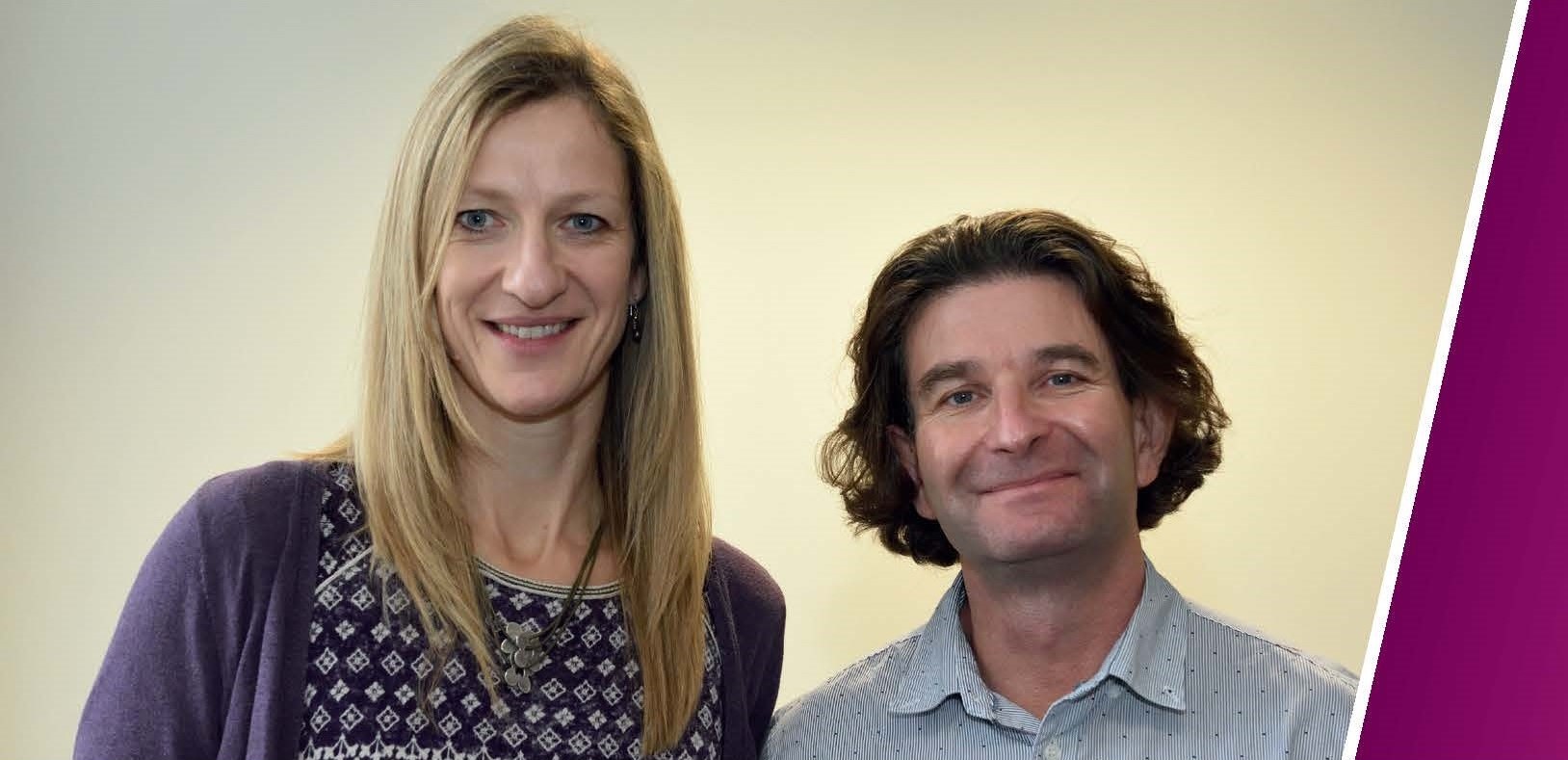Reducing the burden of cancer through prevention and early diagnosis
Previous work by Richard Martin, Professor of Clinical Epidemiology, and Caroline Relton, Professor of Epigenetic Epidemiology (pictured right), has shown that lifestyle changes and modification of certain risk factors can have dramatic effects on cancer prevention. Their research distinguishes between risk factors that are possible targets for therapeutic or behavioural interventions (including lifestyle and metabolic factors) and biomarkers that can predict who may be at risk of developing the disease.
They now lead the Integrative Cancer Epidemiology Programme (ICEP), a major 10-year programme funded by Cancer Research UK, to identify modifiable risk factors for developing cancer and gene targets that could be exploited for drug prevention; categorise the interaction between genes and environmental factors in the development of cancer; and isolate blood-based ‘omic biomarkers for cancer risk prediction. They particularly focus on the common cancers: bowel, brain, prostate, breast, and lung, as well as kidney, ovarian, endometrial and head and neck cancers, accounting for well over half of all new cancer cases annually.
ICEP is hosted by the University of Bristol, in collaboration with the International Agency for Research on Cancer (IARC, Lyon, France) and McGill University (Montreal, Canada). Other international links include the Nord-Trøndelag Health Study, one of the largest longitudinal population health studies ever performed, based in Norway.
Building on the success of the CAP and ProtecT trials led by Professors Martin and Donovan, Professors Martin and Relton are also developing new early cancer detection tools to address cancer mortality by finding cancer at a stage when it is still easily curable.
https://www.bristol.ac.uk/integrative-epidemiology/programmes/icep/
Publications:
- Morales-Berstein F et al. (2022). Assessing the causal role of epigenetic clocks in the development of multiple cancers: a Mendelian randomization study. eLife.
- Yarmolinsky J et al. (2022). Genetically-proxied therapeutic inhibition of antihypertensive drug targets and risk of common cancers: a Mendelian randomization analysis. PLOS Medicine.
- Gormley M et al. (2022). Investigating the effect of sexual behaviour on oropharyngeal cancer risk: a methodological assessment of Mendelian randomization. BMC Medicine.

Professors Caroline Relton (left) and Richard Martin (right)